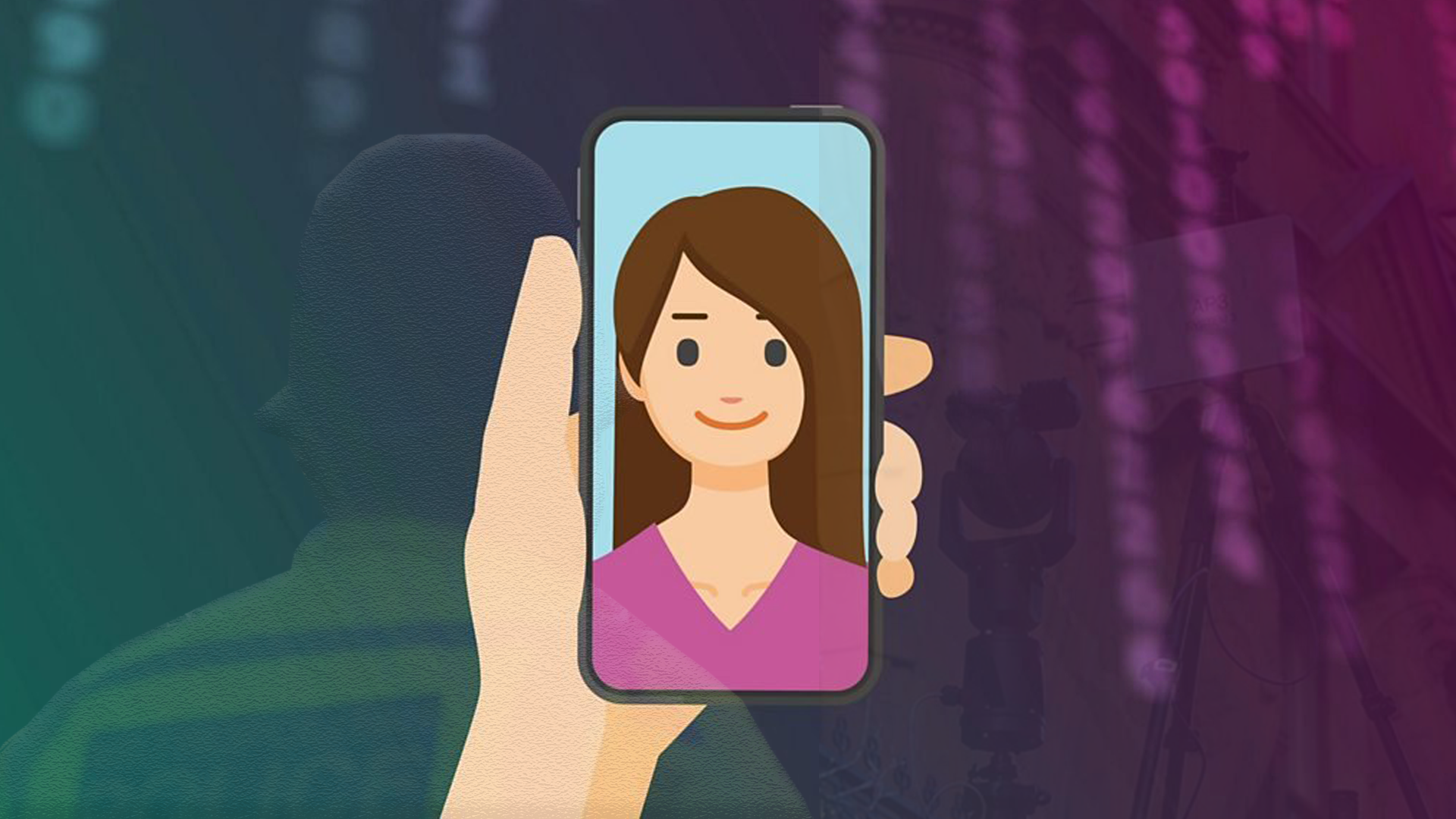What is artificial intelligence and why does it matter to you?
- Published
- comments
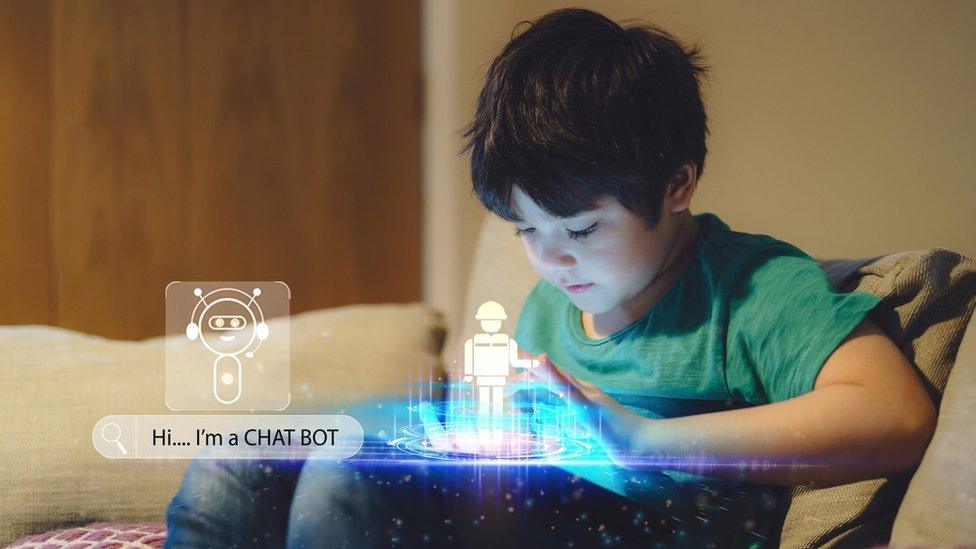
The UK government revealed a "world first agreement" on Wednesday to help protect us from certain kinds of artificial intelligence or AI.
This agreement, known as the Bletchley Declaration, was signed by 28 countries, including the United States, China and the European Union, at the UK's Artificial Intelligence Safety Summit.
Around 100 government and technology leaders from across the world came together to discuss important issues and developments in the world of AI at the two-day conference in Buckinghamshire.
But what exactly is artificial intelligence? And why is it something that we might need protecting from?
What is artificial intelligence?
How does artificial intelligence work?
Artificial intelligence, or AI, is where a computer is able to carry out a task in a way that can be considered human-like.
The term "artificial intelligence" was first used in 1956.
In the 1960s scientists were teaching computers how to mimic - or copy - human decision-making.
This developed into research around "machine learning", where robots were taught to learn for themselves and to remember their mistakes, instead of simply copying behaviour. Algorithms play a big part in machine learning as they help computers and robots to know what to do.
How does it work?
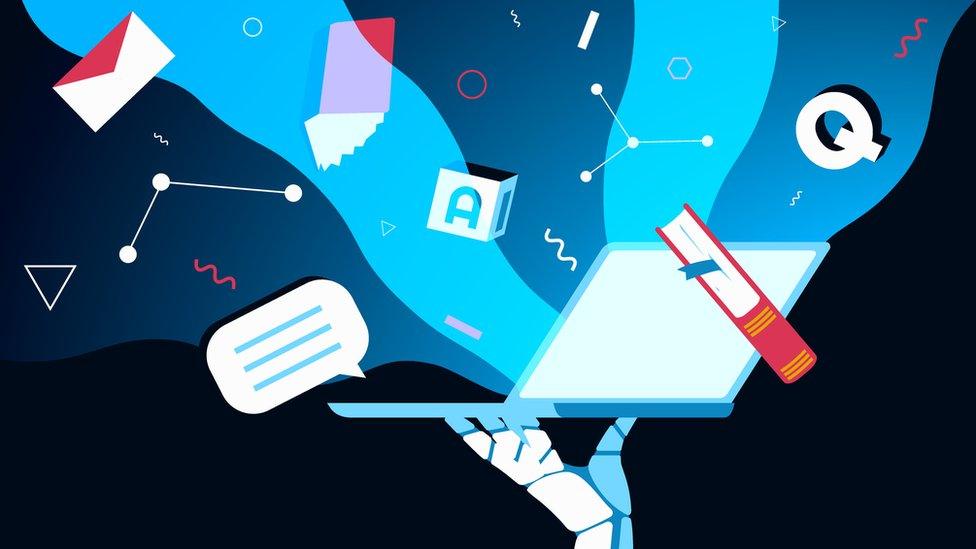
Artificial intelligence works by learning rules and patterns from lots of kinds of data
Computers can be "taught" how to do things in a number of different ways.
One way is through algorithms - which is a fancy term for a set of rules that a computer must follow.
Another way is through experience.
For example, a computer might learn how to play chess by being taught the rules of the game before playing millions of matches, and then gaining an understanding of chess with every win and every loss.
A computer should be able to spot patterns in the information it receives, which helps it to make decisions, predictions and even take real-world action.
If you cannot see this image, click here.
What are some examples of artificial intelligence?
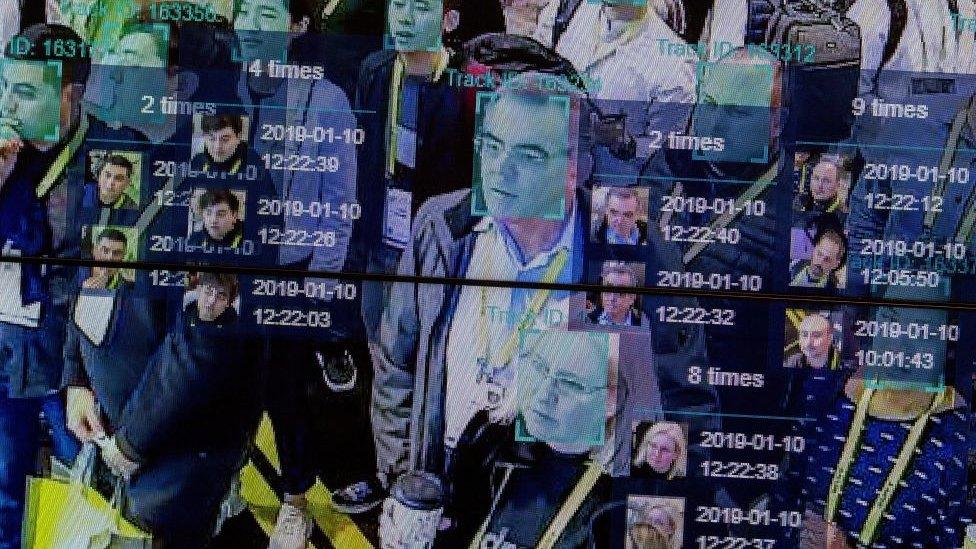
Facial recognition technology has been made possible through developments in artificial intelligence
You can find artificial intelligence being used almost anywhere now - even in your home or at school.
Search engine Google uses AI to rank the webpages that come up when something is searched for, and allows users to search with images and voice commands instead of text.
Artificial intelligence is also used by social media apps like TikTok, Instagram and Snapchat to show you posts and products the apps think are most relevant to you.
Facial recognition has also been made possible due to artificial intelligence, allowing someone to unlock their phone or computer using only their face.
Outside of the home, artificial intelligence has been used to create driverless cars, flight simulators and to predict the weather.
Artificial intelligence is also being used to help detect and diagnose illnesses like cancer.
What is generative artificial intelligence?
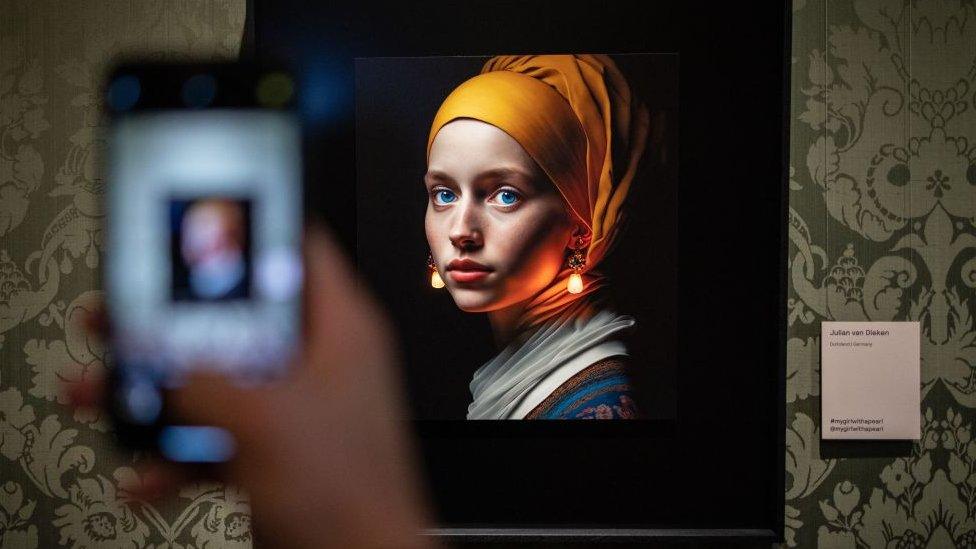
AI has produced an image inspired by Johannes Vermeer's painting "Girl with a Pearl Earring" on display at the Mauritshuis museum in the Netherlands
Generative artificial intelligence is where programs can learn from lots and lots of data to create, or generate, new content that seems human-made.
ChatGPT is an example of generative artificial intelligence. It is a chat bot that is able to talk and respond like a human.
And other programmes like DALL-E can use text instructions to create images that look as if they've been photographed, painted or drawn.
What do critics of artificial intelligence have to say?
Artificial intelligence is being used in all sorts of ways, but as the technology develops quickly, some people have raised concerns.
For example, there are worries over the accuracy of data that is given to AI by humans.
In 2019, a US government conducted a study into the facial recognition software of 99 companies.
The technologies struggled to accurately identify African-American and Asian faces compared to white faces.
"When we've been teaching it about people's faces there hasn't been as much focus on people of colour so the data contains more images of white men and women," technology expert Krittika D'Silva said.
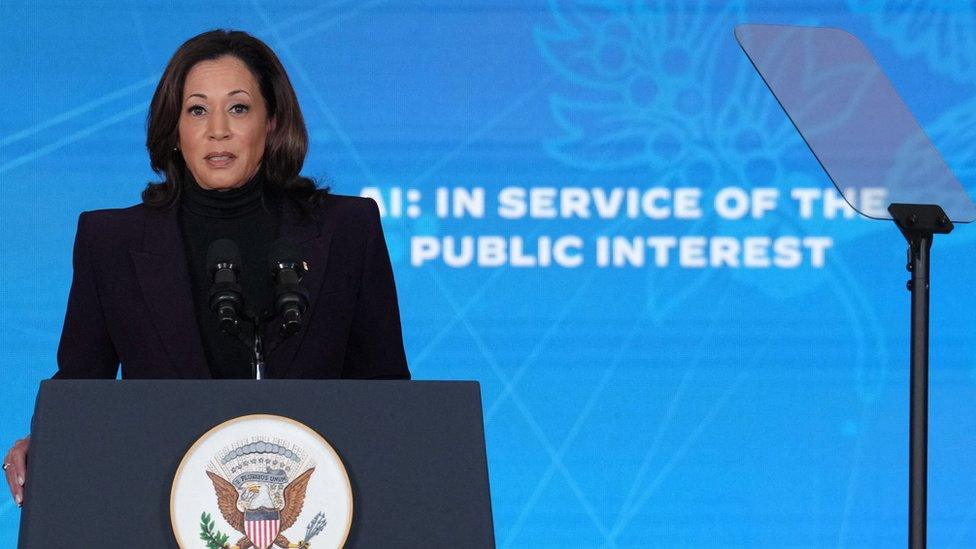
Vice-President of the United States, Kamala Harris, shared her concerns about artificial intelligence in London on Wednesday
Others are worried about the privacy of artificial intelligence.
Vice president of the United States, Kamala Harris, spoke ahead of the UK's Artificial Intelligence Safety Summit on Wednesday about her concerns of "cyberattacks at a scale beyond anything we have seen before".
Some technology experts, such as Tesla and X CEO Elon Musk, say they worry that AI could be a big threat to the world.
But lots of experts say this is too negative a view, with Meta's president of global affairs Nick Clegg saying "speculative, sometimes somewhat futuristic predictions" should not get in the way of immediate issues to do with AI technology.
Others are more concerned about jobs, as it's believed artificial intelligence could replace many careers.
Investment bank Goldman Sachs wrote a report that suggested AI could replace the equivalent of 300 million full-time jobs across the globe.
Prof Gina Neff, who runs an AI centre at the University of Cambridge, said: "We're concerned about what's going to happen to our jobs, what's going to happen to our news, what's going to happen to our ability to communicate with one another."
What is being done to protect us from artificial intelligence?
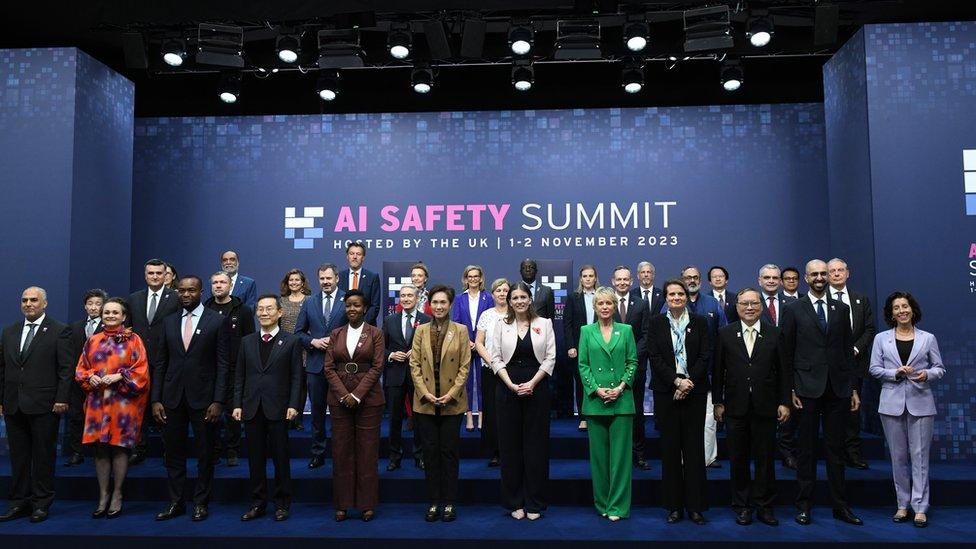
UK science, innovation and technology secretary Michelle Donelan posed for a photograph with international ministers at the AI Safety Summit 2023
The summit has brought together world leaders to discuss the future of artificial intelligence, and ways to protect the world from the technology developing in a way that might cause harm.
The Bletchley Declaration shows there is a desire for countries to work together to better understand the benefits and risks of artificial intelligence.
Technology Secretary Michelle Donelan said at the summit: "We have always said that no single country can face down the challenges and risks posed by AI alone, and today's landmark declaration marks the start of a new global effort to build public trust by ensuring the technology's safe development."
China's Vice Minister of Science and Technology, Wu Zhaohui, agreed that the world needed to work together on this issue.
"We call for global collaboration to share knowledge and make AI technologies available to the public," he said.
- Published1 March 2023
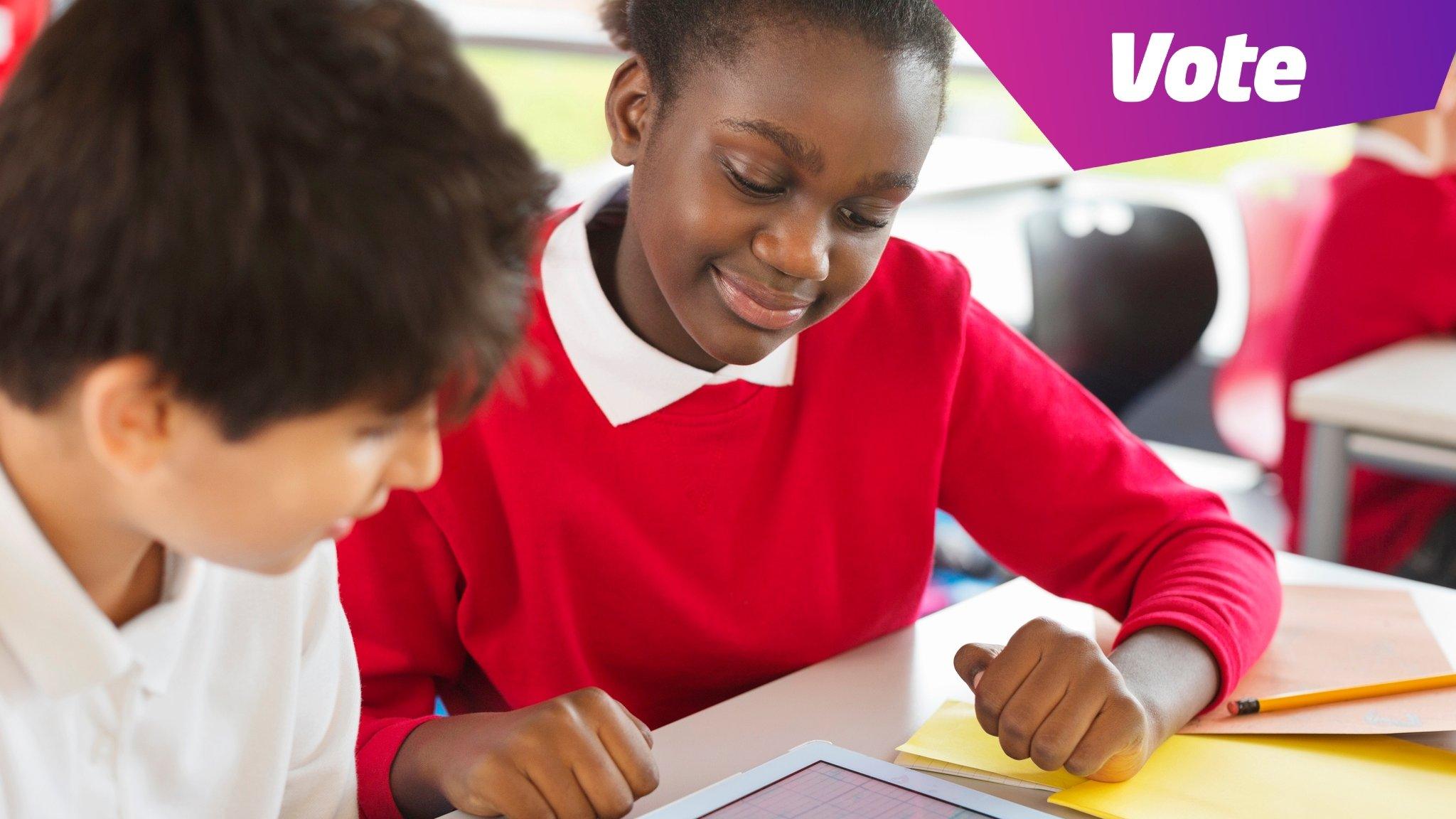
- Published15 October 2023
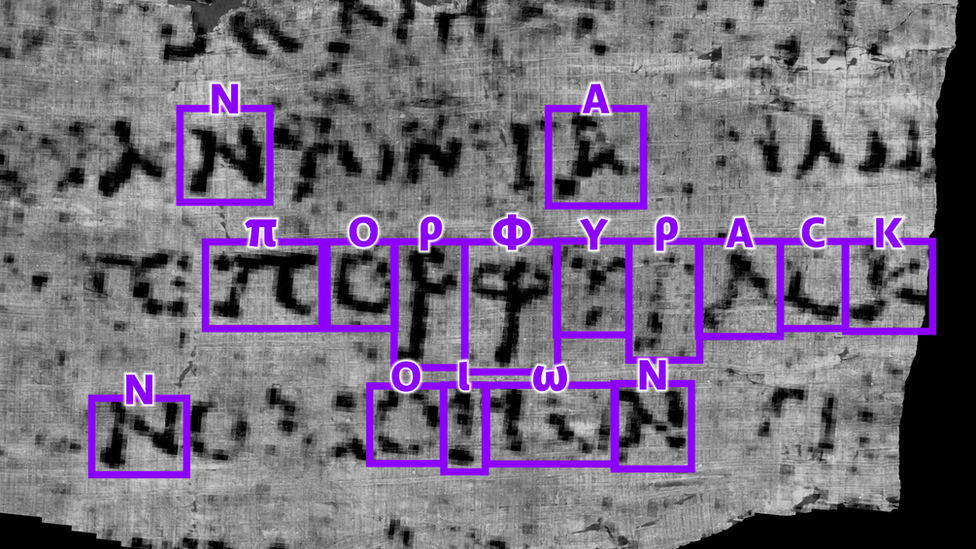
- Published5 August 2020
